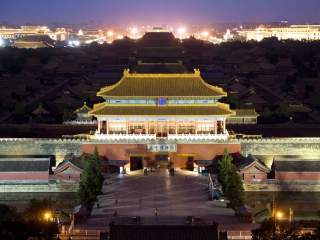China's Most Dangerous Enemy Is Global Public Opinion
Ordinary citizens are steering their countries' policies toward Beijing.
The BRICS grouping warrants special attention, given its potential for influencing geopolitical relations—despite questions about its cohesiveness. The newly created BRICS New Development Bank is seen as a potential competitor or collaborator with the World Bank and IMF, motivated in part by the opportunity to check the G7’s dominance in the global financial architecture. But it is also worth noting that these countries differ significantly in economic circumstances, cultures and political thinking, despite sharing a desire for a global financial system that is less dominated by the G7. Excluding Russia, the others do not necessarily see themselves as natural allies with China in terms of foreign policy, but more as economic competitors. This shows up in the Pew surveys, which show that within the respective regions of Latin America (Brazil), Africa (South Africa) and South Asia (India), BRICS countries tend to perceive China more negatively than their neighbors, motivated in part by worries about being dominated by China within the grouping and being able to compete in the global-trade arena.
Today whether you are the dominant great power (the United States) or a small neighbor of China, public perceptions of China’s influence are amplified by a combination of economic and security concerns. While nearly half of Americans surveyed see China as a military threat, compared with about a third in Europe, a poll from the Chicago Council on Global Affairs shows that the American public overwhelmingly—by a measure of 77 to 23 percent—feels that China’s economic strength, rather than its military might, determines its power to influence global events. Nevertheless, more attention these days is being given to security-related issues. given the tensions surrounding cybersecurity attacks, island-related territorial disputes and maritime incidents.
Risks have also increased because of growing nationalism in China and among its neighbors. All this has driven China’s neighbors to welcome the United States playing a stronger role in the region, including the more visible military presence that its high-profile rebalancing to Asia has come to embody. There is considerable nostalgia for a past when the United States, as the dominant regional power, provided the security blanket and framework that allowed East Asia to prosper. A rising China, seeking what the leadership calls a “new kind of great-power relations,” is driving a worrisome shift in public perceptions. It remains to be seen whether heightened tensions eventually lead to serious conflicts between China and its U.S.-backed neighbors, or a more conciliatory process that will allow the region to remain stable and prosper.
Yukon Huang is a Senior Associate at the Carnegie Endowment and a former World Bank Director for China. This note draws on his book on China’s economy, to be published later this year by Oxford University Press.
Image: Flickr/Dimitry B.

